Episode 301 - How Entrepreneurs Can Develop Enduring Friendships with Dr. Bryan Lorrits
In this episode of the Faith Driven Entrepreneur Podcast, Dr. Bryan Loritts joins Joey Honescko and William Norvell to discuss the importance of deep, long-lasting friendships in the context of entrepreneurship.
Pulling from his new book, Enduring Friendships: Sticking Together in an Age of Unfriending, Dr. Loritts emphasizes the need for what he calls “soul friends.” These are the people whom we can bear our souls with and who can provide guidance and support in our journeys.
He also highlights the challenges that entrepreneurs face in maintaining lasting friendships, such as being productivity-driven and lacking time for people. He provides practical advice on finding and nurturing these enduring friendships, including putting oneself in the right environments and being intentional about prioritizing relationships.
For more from Dr. Loritts, check out his new book: https://www.amazon.com/Enduring-Friendship-Sticking-Together-Unfriending/dp/1514008440
All opinions expressed on this podcast, including the team and guests, are solely their opinions. Host and guests may maintain positions in the companies and securities discussed. This podcast is for informational purposes only and should not be relied upon as specific advice for any individual or organization.
Episode Transcript
Transcription is done by an AI software. While technology is an incredible tool to automate this process, there will be misspellings and typos that might accompany it. Please keep that in mind as you work through it.
Joey Honescko: Friendship can be a touchy topic. Even the author of Proverbs addresses this in chapter 18, verse 24, when he writes, one who has unreliable friends soon comes to ruin, but there is a friend who sticks closer than a brother. So that means that friendships have the power to build us up or terrace down. And the challenge is in finding and sustaining those friends who stick closer than brothers. A lot of the times, it might even feel like this is actually an impossible task, especially for entrepreneurs. We are often busy. We're tired. We're up to our neck and obligations and responsibilities. Why would we prioritize the hard work that goes into a long lasting friendship? That's the question at the center of our episode today with Doctor Brian Leyritz, a pastor and author of the new book, Enduring Friendships Sticking Together in an Age of Unfriending. He joins me and William to unpack the challenges and the beauty of finding those friends who stick closer than brothers. I'm Joey Ionesco, and you're listening to the Faith Driven Entrepreneur podcast. Let's get into it. Welcome back, everyone to the Faith Driven Entrepreneur podcast. I'm your host, Joey Nasco, alongside today's co-host and a familiar voice on the show, William Norville. William, it's been a bit. Man. How you doing? Give us an update on Forte. What's going on, man?
William Norvell: Man, it's. It's good to be back, everybody. How's everybody doing? Y'all have stewarded things well, but, yes. Took a little break to go, grow a company. It's been going well, man. It's been super fun. I'd say the, the biggest update of, this year is we've just found a lot of really fulfilling work working with franchise owners, serving the hourly workforce, and also serving pastors, which, is a great lead into the show today. We've, found a sector there where pastors are just lonely and burnt out, and we've been able to provide guides to come alongside them in their journey that they're going through. And so, it's been really fun. It's been really fun. And a lot of, what I'll call good work. There's a lot of bad work sometimes in startups. But this has been a lot of fun. Good work, where we've got a lot to do because there's a lot of people to serve.
Joey Honescko: Yeah. That's awesome. Yeah. You're talking about coming alongside people in that Segways perfect into this conversation, because we've got Doctor Brian Lorenz with us, and he's the teaching pastor at Summit Church. He's an author of numerous books, including his most recent Enduring Friendship Sticking Together in an Age of Unfriending, and that's out now with InterVarsity press. And you can find it at the link in the show notes. But Doctor Lorenz, thanks for joining the show. Thanks for being here.
Dr. Bryan Lorrits: Always good being on platforms like this. And good meeting you all for the first time.
Joey Honescko: Yeah, awesome. Well, hey, let me dive in. Because as our audience knows, we talk a lot about community at Faith driven. We have these groups that meet in coffee shops, boardrooms, churches, zoom rooms all around the world. We've had more than 15,000 people go through these groups, entrepreneurs specifically, and they've been able to find community. They've been able to find those relationships. We know that right now there's an epidemic of loneliness. We need friendship. We need each other. And in the book, Enduring Friendship, you focus on a particular aspect of community and relationships, which are these deep, long lasting friendships. And I like that you use the metaphor in the book about the happy few who join you for the whole marathon. So I want to just set you up, give us a little intro to the book, and talk about how those kinds of relationships differ from just kind of your basic guy who goes to lunch with you every once in a while, or these other elements of community.
Dr. Bryan Lorrits: Yeah. The class called What we're Getting At your. And I'm curious what they meant by that is your soul friends, social scientists will tell us that, any study reveals that we only have the capacity for three, no more than five of these kinds of friends. So we're not just talking about someone, you know, you take in a ballgame with, or someone you talk to every now and then. These are like people you bare your soul with. I mean, if you're familiar with the Bible, this will kind of be David and Jonathan kind of stuff. And so this is really what I'm pointing to, how to nurture these, if you can find one, if you can find a handful of these, you've kind of hit the lottery ticket of life, but inevitably because of the reality of sin. And we can get into this in just a few moments. People have shadow sides. And so no matter where you may come from on the spiritual spectrum, you get to know anybody. You're going to see the not so pleasant side of who they are. The Bible has a word for this. We call it sin slow, three letter word with eye in the middle. And so if every time someone does something to disappoint you, and because I'm a sinner, I'm bound to disappoint you, you're bound to disappoint me. And if every time I do something to offend you, or you do something to offend me and I cut you off, I throw up a boundary. I'm going to go through life lonely. But if I want to kind of maintain healthy friendships, I really need a guide in how to have these enduring kind of friendships. And that's what I tried to provide through the book.
Joey Honescko: Yeah, when I hear that, I think of another book, Anne of Green Gables, which is usually not one that comes up a lot, but she talks about, bosom friends, these lifelong kind of tight knit friends. I might get some razz from folks for calling out of Green Gables, but great book, but not my mother.
William Norvell: She's going to love that.
Joey Honescko: That's good.
William Norvell: I think a lot of my mother's favorite books of moms. Listen, she's going to love that one.
Joey Honescko: Perfect. All right, well, Doctor Lorenz, I'm thinking because you give this really good example of a successful entrepreneur you were in contact with in the book. And when you're talking about, you know, sin, these challenges with friendship, you point out that how it's uniquely difficult for people with a certain degree of influence or a certain degree of power to maintain those lasting friendships in the way that maybe power or influence doesn't push us to the kind of vulnerability that's often needed for friendships. Could you just kind of talk a little bit about that? Because a lot of our audience are they're CEOs, they're entrepreneurs, they're founders, they're leading high capacity teams. And so they often have that kind of challenge with offering themselves. Vulnerably and they feel like they have to protect themselves a lot. So what are those specific and unique challenges people like them face?
Dr. Bryan Lorrits: Well, yeah. So if I can take it out of a power box, I just think entrepreneurs in general have some unique challenges to them that make it really, really difficult. And I can really identify with entrepreneurs, having started a church from scratch and seeing it grow to a couple thousand people, I can tell you the work that is involved in that. I think one of the unique challenges in the area of friendships for entrepreneurs is we can be so productivity driven that we don't leave much margin for being people driven. And so the classic mistake I made in my 20s and 30s especially, I was I was so focused, so type A personality. So, you know, let's charge the hill that I didn't have much room for people. I didn't have much room to nurture deep relationships. And, look, I'll just be honest and vulnerable. I would say I didn't do well even in my own marriage. I mean, I in that quarter of time we had a decent marriage, but, I mean, I just felt all this stuff any entrepreneur would feel. We'd moved to Memphis, Tennessee with 26 people. You know, I had to raise a bunch of outside capital. You know, I was trying to get to a place to where we going to build this thing up so I don't have to raise any more money. We're self-sufficient. And that's just all where my mind was. And I had, at the end of the day, accomplished a whole lot. The Lord used me to build this megachurch thing that was getting national attention. And here I stood at the top of the mountain. But the problem was I was standing alone. And so that's where, you know, later on, David Brooks his book The Second Mountain, where I just kind of made up my mind, I need to do a pivot, and I want to spend kind of the second half of my life really investing relationally. I can tell you right now that I'm 51 years of age. I can tell you right now, every entrepreneur that I've interviewed, every older leader that I've interviewed, when you talk about their regrets, all their regrets are relational. Wish I would have spent more time with the kids. Wish I would have spent more time with the spouse. Wish I would have nurtured more friendships. The entrepreneurs that I know who really had a moral implosion. At the end of the day, if you do the autopsy on it, their main problem was that the moral challenge, their main problem was they were living in isolation, in secrecy. So I just think everything goes back to relationships. The Christian worldview would say relationship with God and relationship with others. But if you look, even non-Christian researchers say you can draw a straight line, not between productivity and happiness. That's the crazy maker of it. You can draw a straight line between relationships and happiness. And so relationships. That's where it's at.
William Norvell: That's good. Doctor Lorenz I'm sure you get this all the time. But you've been a big impact on me and my relationships even though we've never met. Two of your other books insider Outsider and Right Color Wrong Culture, just one of my enduring friends and I had just it's been life giving to us to.
Dr. Bryan Lorrits: Have thank you.
William Norvell: Conversations about that and go deep about that, about who we are and how we see the world. And if you haven't picked up those two, we're selling you a lot of books here today, but they're short and they're amazing. And I think they'll give you a view of the world you didn't have before. One of the things I want to dig into for entrepreneur audience is when you speak of the enduring friendships, what are the characteristics? What's going through my head is so I'm an entrepreneur. Do they need to be entrepreneurs? Do they need to understand my world in a certain way, or do they need to just be there and be amazing men and women of God? Right? Or there's some mix of the two. I've struggled with that throughout my life. Sometimes I go, wow, I'm so blessed, but I just keep talking about things. I don't think they get it, you know? Anyway, just curious if you have thoughts along those lines.
Dr. Bryan Lorrits: Yeah. You know, I think what you bring up is a crucial point in Chris Lewis actually spoke to what you're talking about in his book, The Four Loves as he's talking, I think it's specifically about Forleo, which is a friendship kind of love from which the city of Philadelphia gets its name, City of Brotherly Love. C.S. Lewis says that the very essence of friendship begins on the note of you two, right. And I think what he's getting at here is this idea of affinity. And I think there's something to be said for that. Obviously, I don't think cloning each other into our image is what he's talking about there. We're different people. But I do think, especially in the formative years of that friendship, having some affinities is really helpful. Now those affinities can go in a million different direction. It could be work. Affinity can be kind of an affinity built around a hobby. You love golf, I love golf, whatever it may be. Yes, there is something to be said for affinity. I also think, you know, it's good to kind of layer or stagger, ideally what those friendships look like. So I would say, you know, I have an a friend or two who can nod their head in solidarity about what it takes to be an entrepreneur. I think there's some great stuff to that. I also see some great stuff, and having a friend who not only doesn't get it but could care less. But there's other points of commonality there, so I wouldn't put all my eggs in one basket. But yes, I think there is a place for affinity and that affinity of some sort is essential.
Joey Honescko: You mentioned something just a second ago about even going upstream for things like moral failures, and the fact that those can be rooted in isolation. And I want to zoom in there for a second, because we talk a lot about community. We think it's important. Obviously, we already mentioned Epidemic of loneliness, but I feel like this sense of community has become such a buzz word. And when we talk about relationships, it's one of those things that a lot of people feel like, oh yeah, I should get some friends or I should be in a community, but I'm so busy, but I've got a lot of this. And when you talk about something like moral failure is being rooted in an isolated lifestyle, you're really taking that up a level that this isn't just a nice to have in the world. This is something that, like, shapes us, informs us. So can you talk just a little bit more about how valuable and how necessary? Not just a nice plus, but an essential part of being human. It is to be in these kinds of relationships.
Dr. Bryan Lorrits: Yeah, I almost think I need to give you some indicator lights and how to determine what I'm getting at here. So the kind of friend that we're talking about is, is a kind of friend that you have level four, level five communication with. And what I'm getting at here is the classic communication pyramid popularized by Doctor Timo Hoff, PhD and communications professor at Baylor University. And in essence, it says there's five levels of communication. So the very most surface level of communication is. Number one. Good morning. Good morning. How are you? You've communicated, but you really haven't communicated. Levels two and level three or where most guys hang out. Level two is facts. Who won the game? How many points did Steph Curry have? Level three is opinion. who's going to win the NBA finals. But then level four and level five are the deepest levels of relationship. And it's a good grade to determine your relationship. If you're married with your spouse or if you really have a friend. Level four is emotive. It's sharing how I feel, and level five is transparency. It's sharing who I am. Granite level five is a little bit hard to quantify, but you know it when you experience it. We've all had those moments where after some interaction, we've left saying something to the effect of I experienced them. So you're and I'm Caras, as the Celts call it, your soul friends. Yeah. You might get into level two, you know, facts and get level three, but at some point you get down to level four, level five. Let me give you a biblical example of this. Jesus, when he's going into the garden. Gethsemane. At this point, Judas had already betrayed him. So they're down to 11. They get to the garden. Jesus leaves the eight on the outside of the garden. He takes the three Peter, James, and John. And then the gospel writers say, it's at this point where Jesus began to be sorrowful. So they are now seeing a dimension of Jesus in that moment that the other eight didn't see. And what they're seeing is emotion. They're seeing transparency. So how do I know if I really have kind of these soul friends? These are people that I feel safe enough with that I'm willing to confess. Sin two that I'm willing to confide and confess struggles to because I know on the one hand, they're going to embrace me. They're going to accept me, but on the other hand, they're going to also challenge me. Let me give this final thing, okay? I just want to give you some indicator lights to help you determine if you have these friends. So there's a communication pyramid. But then psychologists say that all true deep friendships kind of rests on kind of a three legged stool. It's what they call the R acronym a r e. Number one. Your true friends are accessible, which I think it's a real challenge for entrepreneurs and especially entrepreneurs who are men living in a cell phone, smartphone, social media age, right? Busyness for the entrepreneur is a serious thing. But you make friends. Let me say this way you make room for accessibility with your friends. You're there for them. The R is you are responsive. So when a friend has a need, you're able to respond to them and their need. And the E is engaged. So there's a sense in which, my true friends, there's nothing you can tell me that will make me turn my back on you. And they feel that from me and I feel that from them. Right. So these are kind of good grids that will let you sift through whether or not you're experiencing true friendship.
William Norvell: Oh, I love the practical communication grid and the acronym there. As our audience knows, I'm the crier of the groups. I cry a lot. But now we're going to talk about my best friend, so this could get awkward for everyone. A practical example I want to walk through. I'm just thinking, man in my life that I'm just lucky to have, and I'm a people pleaser. I get really frustrated when I can't solve people's problems or show up on time. And one of my best friends like clockwork, if I have to text him, I've got three small kids. Hey man, I'm going to be late. Or in a rare case like I can't make it at all. I'm so sorry. And it'll be this ridiculous apology. He always responds back, it's okay, I love you, I don't care. You are loved anyway, even though you didn't make this event. And it's a small thing, but it hits me like a rock every time he does it because he knows the level of disappoint. I feel like I'm disappointing him and I can't help him. He's like, I know you feel that, but I love you. Let it go. I know you tried and it just means so much to me, you know, even a silly example. So I'm curious. I feel like we've spent a little time culling the group, saying, how do you identify if you have these people? Well, there's going to be some group listening, going, maybe weeping on the other side of, I don't have those people. And I've now realized it. Where do I find them? How do I find them? Do you have any thoughts on especially, you know, in an entrepreneur's life, like where do you start if you're sitting here going, I hear you and I'm convinced, but I don't know what to do.
Dr. Bryan Lorrits: Yeah. And, you know, that's becoming more and more common. It really, really is. You know, in a sense, you know, I think loneliness has been a problem since day one, but I think. Is even more pronounced now. You know, it was an MIT professor. Last name is Turkle. She wrote a book called Alone Together, and she says, we are as connected as never before and as lonely as never before. So I definitely I would want that person to hear, first of all, you're not alone. You may feel alone in your aloneness, but there are a lot of people who are feeling exactly what you're feeling. The key is, listen, you can't program or manufacture your relationships, right? And I think that's one of the most frustrating things in the church world with small groups, because people enter into small groups, sometimes with the expectation that that's going to be the place that they find their friends, and it just doesn't happen. And I'll just say this tangentially, one of the most frustrating things my wife and I have ever done is date other couples, right? Just, you know, in the hopes of just, man, if we can just find that couple or couples, we can just vacation with stuff. And this is what always happens. Like we'll come back after a night out with another couple hanging out for the first time, and my wife's like, oh, love her. She's amazing. And I'm like, never want to see that dude again or vice versa, right? So that's really a challenge. Here's what I would say. At the end of the day, put yourself in the right environments, be prayerful about it, but put yourself in the right environments. You're probably not going to find what you're looking for in a bar. You know, I'm not anti bars or whatever, but that's going to be a hard sell. But I would try going to church and if it's a big church, trying to find pockets of that church that really shrink that church down smaller. At our church we have this thing called young professionals. That's a great environment. Some churches, you know, they've got young married saying they got a marriage thing, a singles thing, small groups, whatever it may be. But I would just put yourself in the right environments. I can't offer any better advice than that, and just be prayerful about it and just see what happens.
Joey Honescko: It makes me think there needs to be some role of vulnerability in this as well, right? I think of a friend, a dear friend that I have that couple months ago. We've always been pretty good friends. And he came over and he sat in front of me and he pretty much said to me in so many words, I would like to be soul friends. Can we try to make that happen? And there was a version of it that it was so shocking. And he's a person that I'm very close to, and it was such a vulnerable moment for him because he was like, I'm not great at making friends. We have this connection. And I was so impressed and astonished and like, honored that he would ask me that. And we've become very closer and closer since then. But there was that kind of cognitive switch, and there was that vulnerability, right? Walking into a faith of an entrepreneur group or a church small group, without knowing anybody coming in. It's a you're vulnerable. Right. And so what is the role of maybe it's humility, maybe it's vulnerability of walking into those spaces, saying, I'm open for what this is going to be, and I'm going to step into the risk that it takes for this to be accomplished.
Dr. Bryan Lorrits: I love that, and I think you hit the nail on the head. Right? So I'm a big proponent that every friendship as it progresses over time, I don't think we do this right away or even early on. So don't be weird. But I think every friendship should have what I call a DTR moment, right? So some people, you know, I'm an old guy. I remember the I kiss, dating goodbye kind of era, and everybody had drank the Kool-Aid. And I just remember all these guys just going on their first date, just going. Hey, I just want you to know, my intentions are we're doing this, we're working towards marriage, and these girls would get freaked out, right? So I'm not saying have the DTR upfront. It may even take you a year to get there, but here's the biblical principle in First Kings chapter 18, right after David has killed Goliath, he meets Jonathan. Like I imagine David is just holding Goliath's head still, right, blood running down his arms. And it says that Jonathan made a covenant with David, made a covenant. Like there was this thing in which there was an affinity there. Both of them are leaders. Both of them are warriors. It's almost at that moment. They're just like, listen, we don't want this to just be random. I think we're headed in the same direction here. And let's just kind of have, what are we doing here? Kind of a talk. I did this, some years ago. About ten years ago, with a group of guys we had met years before. We were part of a small group. We got together, I pulled them together, and we had, what are we doing here? Kind of a moment. And that's turned into an annual retreat. We live all around the country, and, you know, we text and call all the time. But I do think even though friendships oftentimes are formed organically, they are. Are nurtured and kept intentionally. So I think that's the principle we're talking about here. There's steps of intention. And once it gets to that intentional level now I can know how to prioritize things. Here's the last thing I'll say in regard to what you're talking about. Most entrepreneurs, if not all entrepreneurs, the struggle that you have is you're going to have to switch from having calendars that are task driven and to having calendars that are priority driven. Most people, their calendar philosophy is the classic the tail wag the dog and you just you're just so busy going and blowing that you can wake up one day and just realize I've done a lot of things, but I think I've neglected a lot of things, and you got to sit down and figure out what are your priorities. And one of those priorities should be time and margin for friendships. And your calendars have to intentionally make room for that. And all of this is the intentional steps that we take to really nurture good friendships.
William Norvell: That's good. I love that priority driven versus task driven. That's good for life, work and everything in between. To think through that. One of the big moments for me was when I had children. I've got a six and a four and a two year old and, you know, there's a lot of people in your life and then they're kind of becomes less people in your life. And I remember just really thinking about who do I want raising my children with me. And it became those 3 to 5 people, you know, for the most part. And there are people that if my children grow up with, I want them to emulate them. I want to emulate how they love people, how they're kind of people, how they show up for people, and I want them to see them. So that was a big filter for me. And then the second thing I want to I want to switch to a topic that may be more uncomfortable than where we've been so far is confrontation and difficult conversations, because I think we all know you can't make time for difficult conversations with everyone who you may have an issue with, or you get a little sideways with, but I'm guessing with these people, it needs to be a priority. And I'm curious how you think through those second, third, or however level you deem necessary conversations with people that really matter.
Dr. Bryan Lorrits: Yeah, well, look, here's the weird thing about your question, which is spot on. The weird thing in the context of a group of entrepreneurs is confrontation is just kind of part of the job description, isn't it? But it does become more difficult when you take off the boss hat. Right? And you've got this peer friend hat on, but nonetheless, it's something you have to do. So here's a couple of just big principles that I think we have to abide by as we're trying to. Look, I'm a center. You're center, which means if we're friends, I'm going to inevitably disappoint you. You will inevitably disappoint me. If we want this thing to endure, we're going to have to have consistent conversations along the way to sharpen one another. Right? And so when that happens, there's a verse in the Bible that I think really needs a lot more unpacking than what it gets. And that's that verse that says, speak the truth in love. I want to put a big caution on that, because when something happens to me, I don't have truth, I have perspective. It's very important. And because when my friend does something that disappoints me and I'm like, oh shit, I gotta have a conversation. When I keep in mind I don't have truth, I have perspective. Then that changes the ballgame. That means I go in not making statements. I go in asking questions, and that posture lowers the blood pressure on both sides. I'm not saying it makes confrontation easy. It makes it easier. And by the way, no one should love confrontation. If you love confrontation, you're a freak. All right, so none of us should love it. But when I come in, just going. Hey, I'd love to have a conversation. Okay? When you did this, I kind of took it this way. I could be way off. Can you just explain that to me? That's a totally different posture than me just coming in guns blazing and just, you know, firing my 12 gauge at a mosquito. And so I would just say, come in with questions and not necessarily statements. Give the other person an opportunity to really talk. Don't do the typical macho thing and act like it didn't bother you. And then here's the genius to go back to the communication pyramid. Use level four kind of language as you are trying to get to the truth. Here's what level four says. Level four says, hey, when you did this, I felt this. It's level four. At the end of the day, people can argue with statements. They can never argue with feelings. Right? And so I highly encourage those little techniques. And I think again, it won't make it easy, but it will make it easier.
Joey Honescko: We've talked about truth. We've talked about vulnerability. There's one other portion here that I want to talk about because you mentioned sin, and I want to talk about grace because the book is full of these little pieces of just grace being extended towards the other. And I think even the way you're talking about confrontation and ultimately reconciliation requires the grace of thinking better of that other person on the other end of the confrontation. And you have this phrase in the book that says, horns don't fit us perfectly, and neither do halos. And you're talking both about the individual that is harmed and the individual that has been doing the harming. So talk about just that tension that we all face that we aren't as right. I think it's the killer quote too. Like we're not as good as we think we are, and we're more love than we could ever imagine or something like that. But that idea of the horns don't fit us perfectly, and neither do halos. Just talk about that topic a little bit.
Dr. Bryan Lorrits: Listen, all of us are incredibly nuanced and complicated people. We're complex individuals. Absolutely. You know, Paul gets to this in Galatians chapter five when he talks about, if you're in Christ, we have the flesh and we have the spirit. It doesn't get more complicated than that. I'm a nuanced person. There's parts of me that I think people will really enjoy. There's parts of me that they won't necessarily enjoy at all that I have to trust are and lean on the Lord to actually sanctify. And here's the problem. We can be downright hypocritical. There's a psychological principle called fundamental attribution error. And what fundamental attribution error says is that when I do something, when I make a mistake, or when I do something wrong, it's because I just made a mistake. When you do something wrong, no, it's your character, right? So let's say I show up late to work. When I show up late to work, it's because, man, the alarm clock went off late. There's all kinds of traffic. There's all kinds of stuff going on with my kids. But when you come late to work, it's because you're lazy, right? And so what that means is we are very promiscuous in giving grace to ourselves, but naturally celibate and giving grace to others. And so when you have a right kind of biblical worldview that says, even on my best day, my righteousness is as filthy rags, that I am a sinner desperately in need of a Savior. When you stay in touch with that, that allows you to leave nuance in other people, and it closes the door to me demonizing other people, and it leaves the door wide open to say, I need grace. Now, let me also extend grace to you. We all need it.
William Norvell: I love that, I love that. Okay, I'm going to jump back to one. I loved the beautiful way you summed up truth in love. However, I'm going to presuppose. And as you told me, I ask weird questions. That's fine too. If you don't like the question, you can reframe it. I'm going to presuppose the in these enduring friendships, there are. Let's say maybe three standard deviation outcomes. We're speaking the truth is possible and is needed. Where you know the feeling language just isn't getting there. But you are so close to this person that you need to cross that line because they are going down a path that you don't believe is a good path for them. And you've tried the communication, you've tried this way and that way, and it's just not working. And you love them so much that it has to be done. I'm curious, am I off there? Am I right there? Am I wrong there?
Dr. Bryan Lorrits: As far as cutting off the friendship.
William Norvell: No, I'm not dumb. I go on that far. But just really like. And maybe I'm just misinterpreting what speaking truth in love means. I have had a friend kind of go, hey, I've spent a couple of hours with you. I don't think you're getting it. I'm going to lay it out there now. Right? Like I feel like I've tried to come at it from a couple angles, but I've seen your actions, man. You're not changing. I'm actually here for the hard conversation. Right. I can think of a good friend of one of my best friend in the world. An alcohol problem. A lot of our audience knows that. He didn't cut me off, but he kind of came at me like, hey, I'm done. You've said this is important. You've said you're going to change. I'm tired of picking you up. I'm not doing it again. If you're not serious about it, I'm not serious about it. And it changed my life. Right. Like I remember that moment where he said. You said Jesus was important to you. Now you said you knew the harm you were causing people, but you haven't changed a thing. Fix it.
Dr. Bryan Lorrits: Yeah. So believe it or not, what you're saying is directly tied to not just the truth conversation. It's really tied to the grace conversation. I think we have very incomplete teaching on grace, right? We only talk about grace from the vantage point of give it, give it, give it, give it, give it right. We don't talk about it from the standpoint of receiving it as much. And the only way you know that that friend has received your grace is that it is changing their behavior. Right? So Paul says to the Romans, shall we continue in sin that grace may abound? No, absolutely not. Like the way you know that you are receiving grace is not that it makes you perfect, but it's changing and reforming your behaviors. And if I am giving grace but the other person isn't receiving it, it's not really changing them. They're still lying. And by the way, you know this better than I do. The nature of any addiction always pairs well with not being a truth teller, right? And so when I have a truth encounter with you, don't hear me saying, use feeling language. Don't hear that as code for don't be clear. We've got to be clear as it relates to what we're trying to get at. I just think there's a way to get at it that may not necessarily be as confrontational and for sure is it mean? But for sure, the greatest gift we can give people is clarity. Now, this is the other thing that I talk about in the book. Yes, you need truth and grace, but you got to have repentance. And so truth is a risky thing. It's me sitting down with you, initiating the conversation, giving you truth. Let's get to the truth. But what you do with the truth is on you. And you know, we call a person who hears truth but doesn't but doesn't change their behavior. We actually call that an abuser. Right? And so I make it very clear in the book, this book and this conversation is not about continuing your relationship with a person who is manifesting abusive tendencies. It's not that at all. So whenever I have a friend and we've had truth encounter, truth encounter Matthew 18, maybe I'm bringing someone else. Maybe we're doing a good old fashioned intervention. If that person fails to respond, it's not me cutting off the friendship, it's actually them cutting off the friendship. It's them choosing the behavior over me. And at that point I just say, hey, listen, I don't think you're ready for this. I'm going to leave the door open, but we can only pick this back up whenever you're ready to walk. In truth, this is First John chapter one. By the way, all this stuff is in the Bible. If we walk in the light as he is in the light, not only do we have fellowship with God, John says, we actually have fellowship with one another. I can't have a friendship with you if I'm walking in the light and you're walking in darkness or vice versa.
Joey Honescko: Yeah, you're bringing us to the Bible, and that's always where we go to, to the close of every episode. But I love what you're saying about it being rooted in grace and not just the giving of grace, but the receiving of it. We have to have our own identities shaped so that we can offer that to others. I think of a group called. Mosaic that I was a part of in seminary briefly, and they talked about that idea that we have been reconciled so that we can be reconciled to others.
Dr. Bryan Lorrits: Was this a Trinity?
Joey Honescko: It was. Yeah, yeah.
Dr. Bryan Lorrits: Oh, yeah. Yeah yeah, yeah. Ted's that mosaic group is legendary.
Joey Honescko: Absolutely great. Yeah, yeah. Very incredible. But I always love that little phrase that we have been reconciled so we can be reconciled. And so it's that kind of receiving it and giving it out. And you brought us to the Bible. That is where we like to end every show that we have. And we just love asking our guests, what is the Lord been teaching you recently in your own study and in the quiet times you've been having? Just something. Maybe it's a verse, maybe it's a specific passage. Maybe it happened this morning, maybe it happened a week ago. But what are those things that you've been seeing through God's Word in your own life?
Dr. Bryan Lorrits: Oh, it's a great question. There's one passage of scripture that I've just been really feasting on over and over again. If God told me, Brian, there's only eight verses in the Bible that you can take with you on a deserted island. It's John 15, verses one through eight, where Jesus says, I'm the true vine. My father's a vine dresser, and he talks about abide in me and I in you. As the branch cannot bear fruit unless it abides in the vine, neither can you unless you abide in me. So just really trying to focus on that abiding, intimate relationship with Christ and being fruitful, that really the essence of my life, the reason why I'm alive today, it is to bear fruit. And the whole idea of fruit. You know, an apple tree doesn't exist for itself. It exists for the benefit of others. In fact, fruit that eats itself is rotten. So I'm here today, to make people better. And I think that's what every Christ follower is here. So, yeah, I've been spending a lot of time just kind of marinating in John 15.
Joey Honescko: That's incredible. Thank you so much, Doctor Lorenz, for joining us. Thanks, William, for jumping back on. It's been a great conversation, listeners. Hope you enjoyed it and we'll see you next week. Thanks for listening to the Faith Driven Entrepreneur podcast. Our ministry exists to equip and resource entrepreneurs just like you with content and community. We know entrepreneurship can be a lonely journey, but it doesn't have to be. We've got groups that meet in churches, coffee shops, living rooms, and boardrooms around the world. Find one in your area or volunteer to lead one and bring this global movement to your own backyard. There's no cost, no catch, just connection. Find out more at Faith Driven entrepreneur.org.





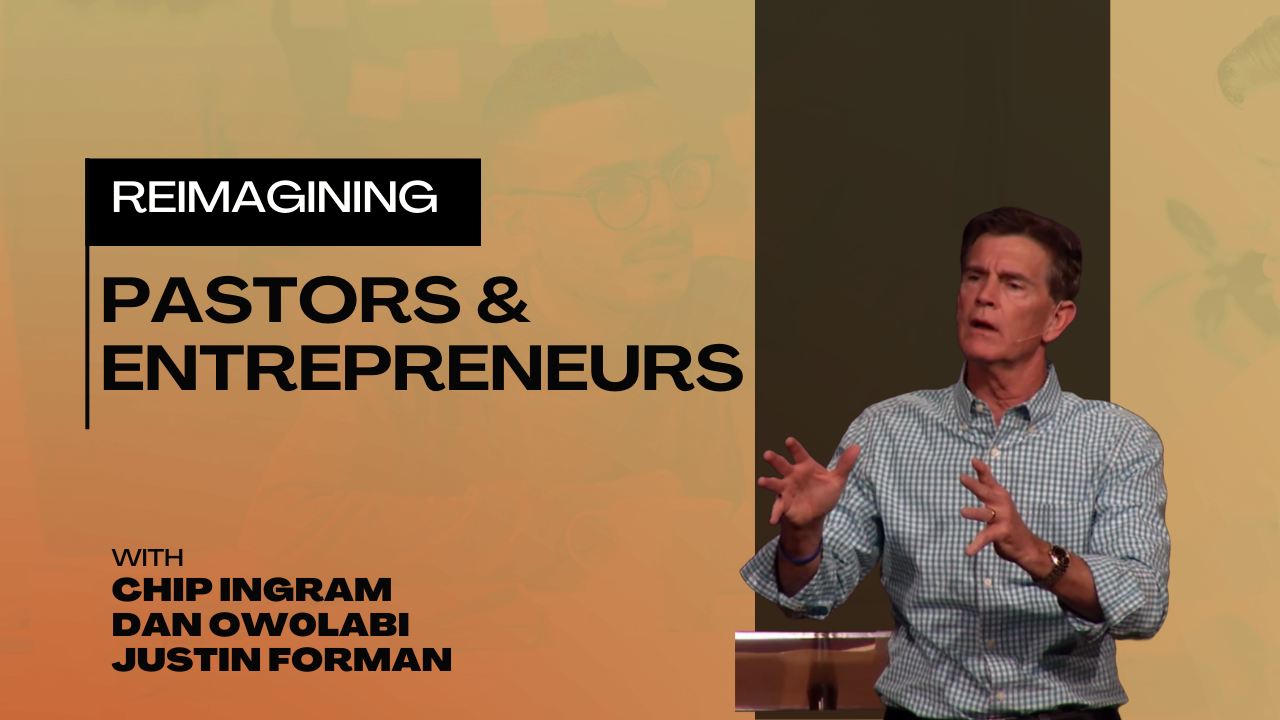
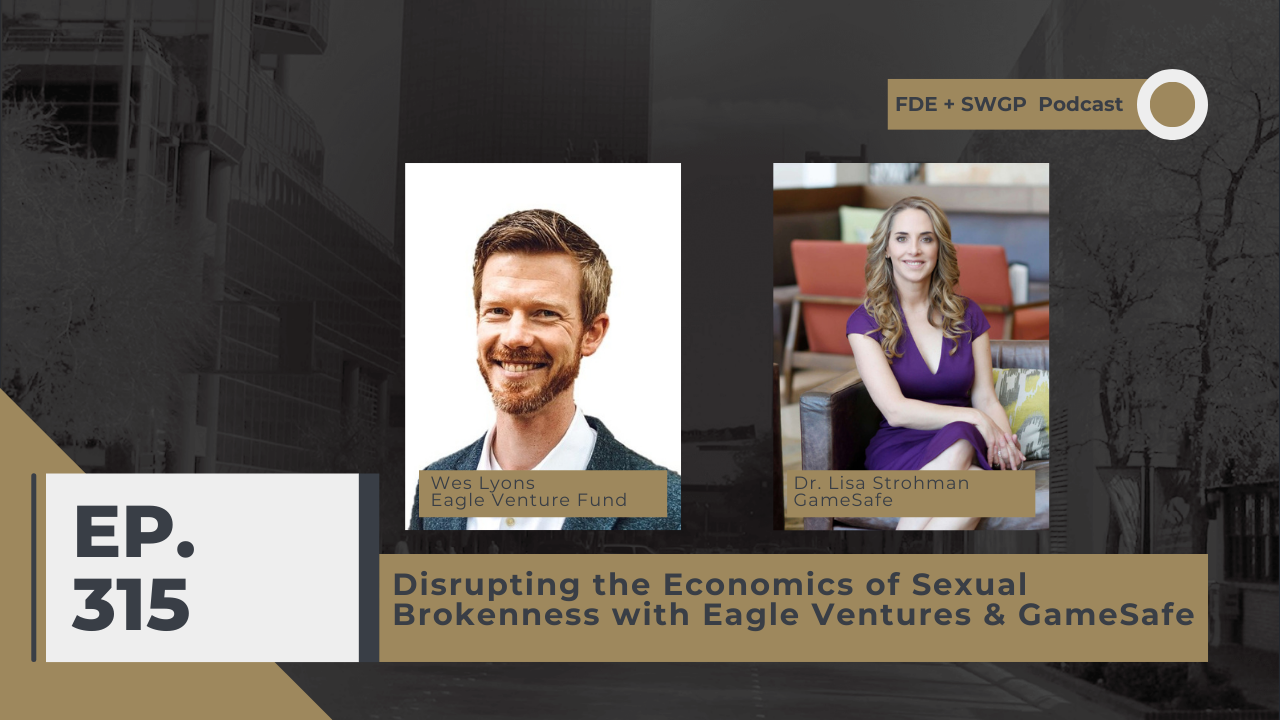
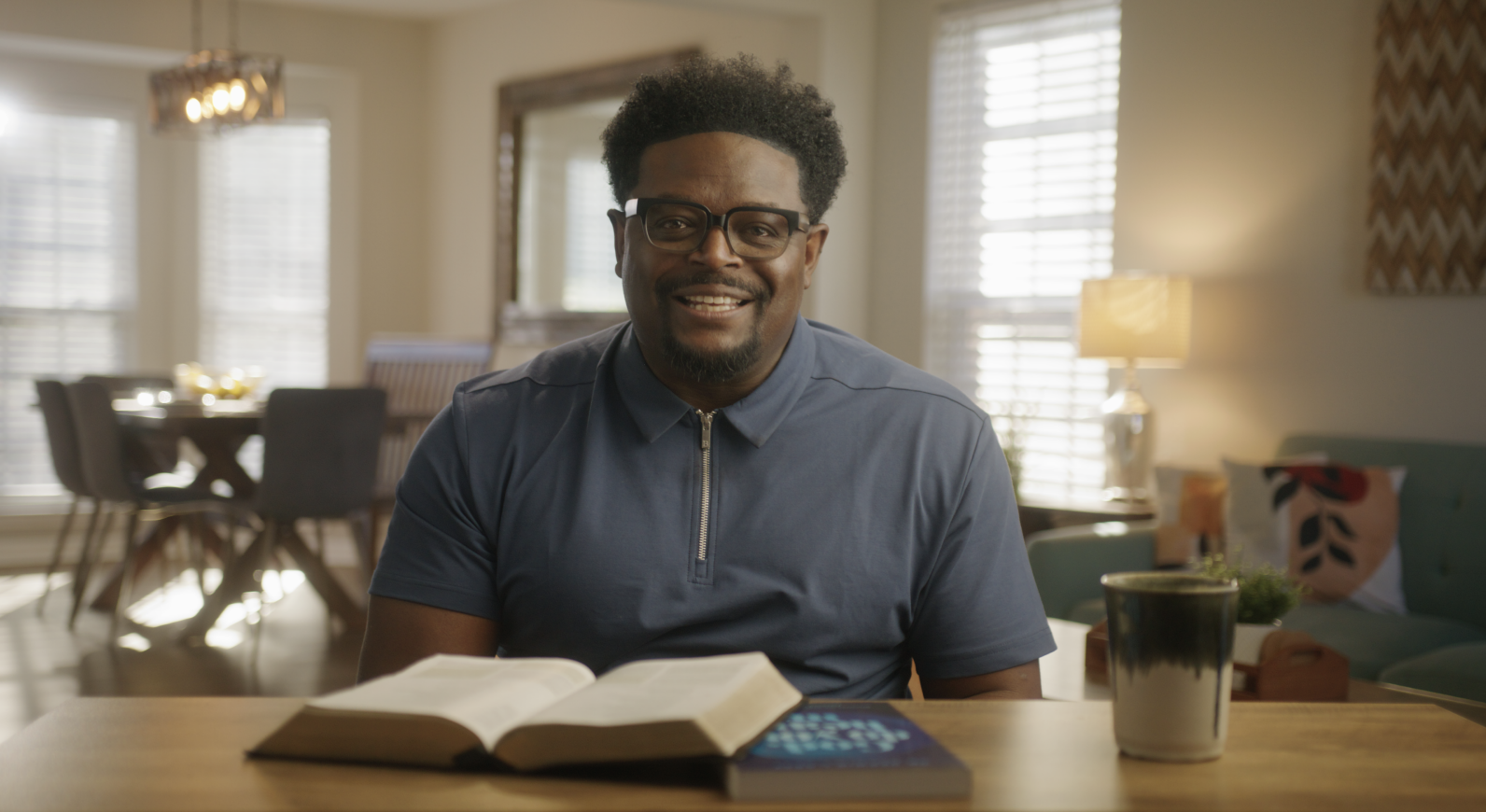

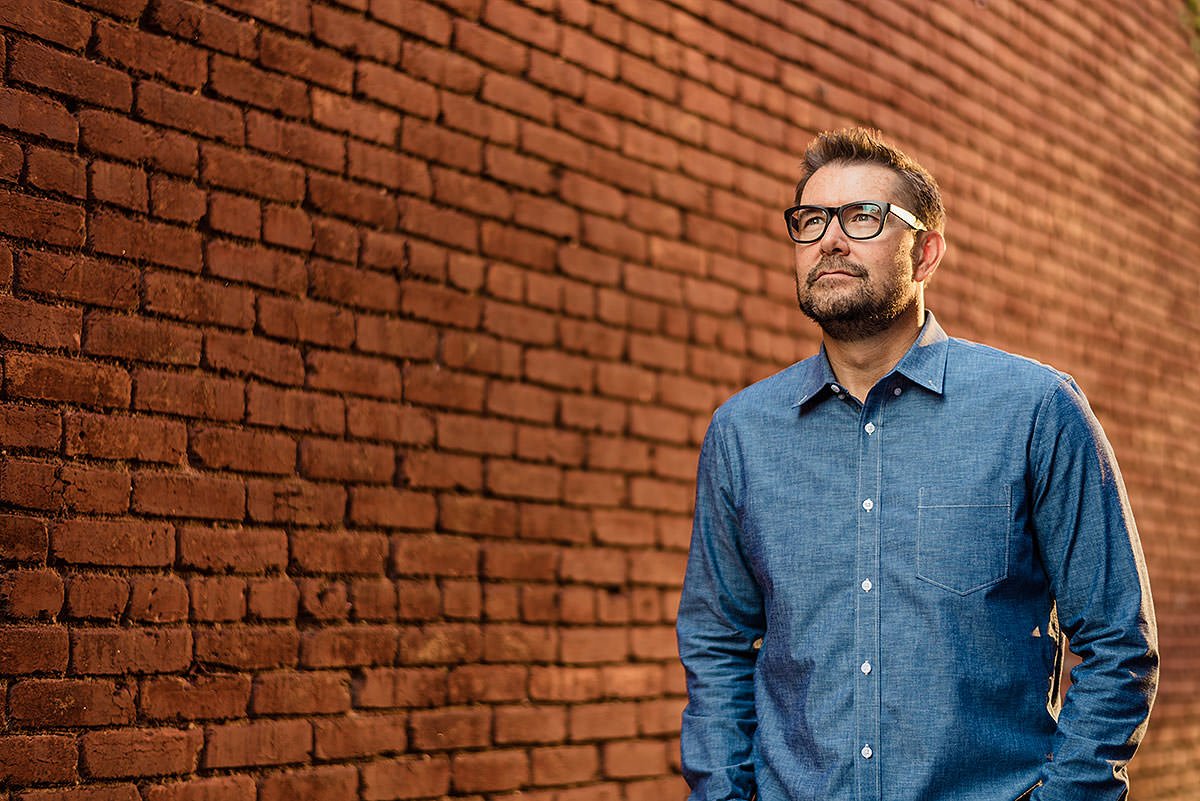
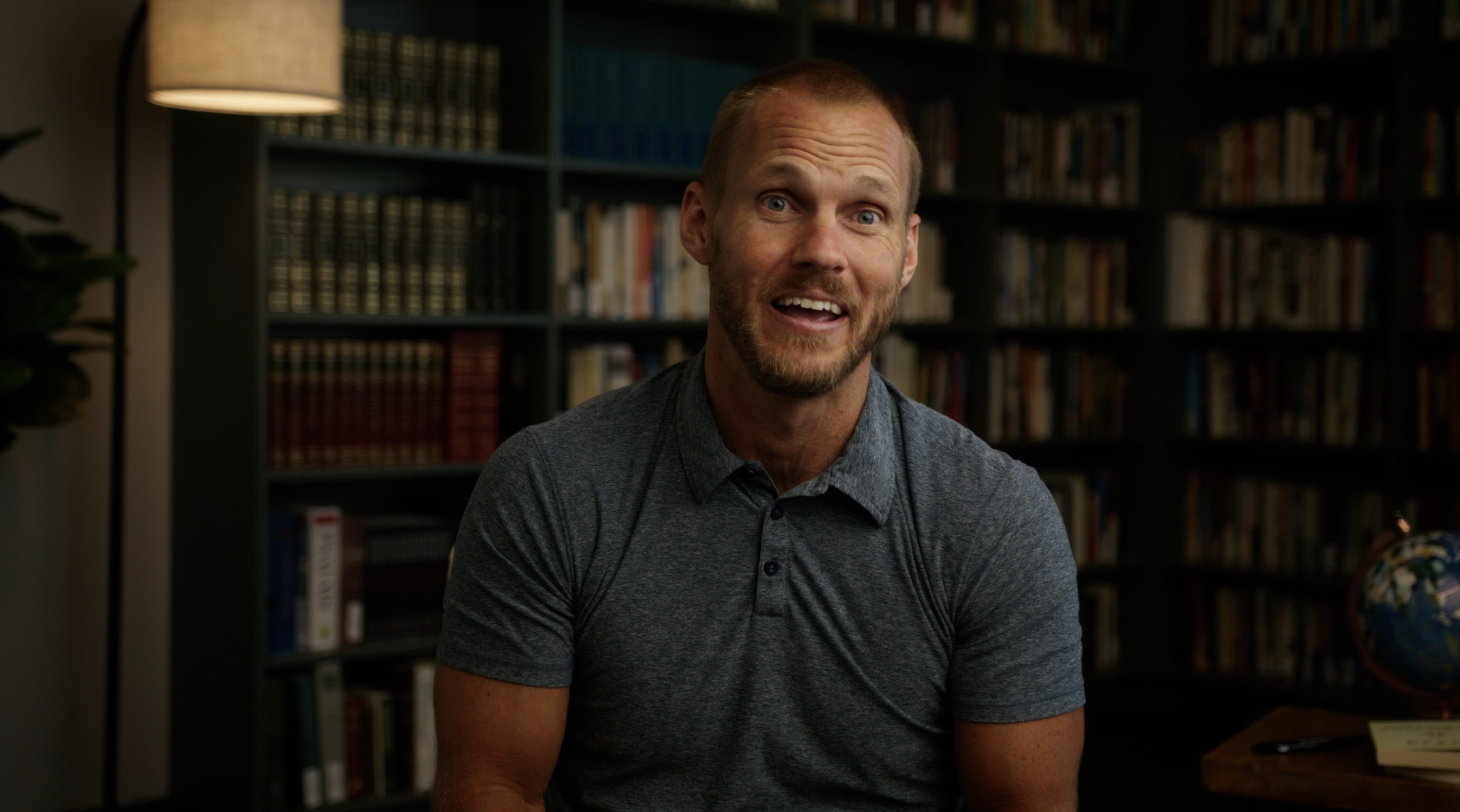
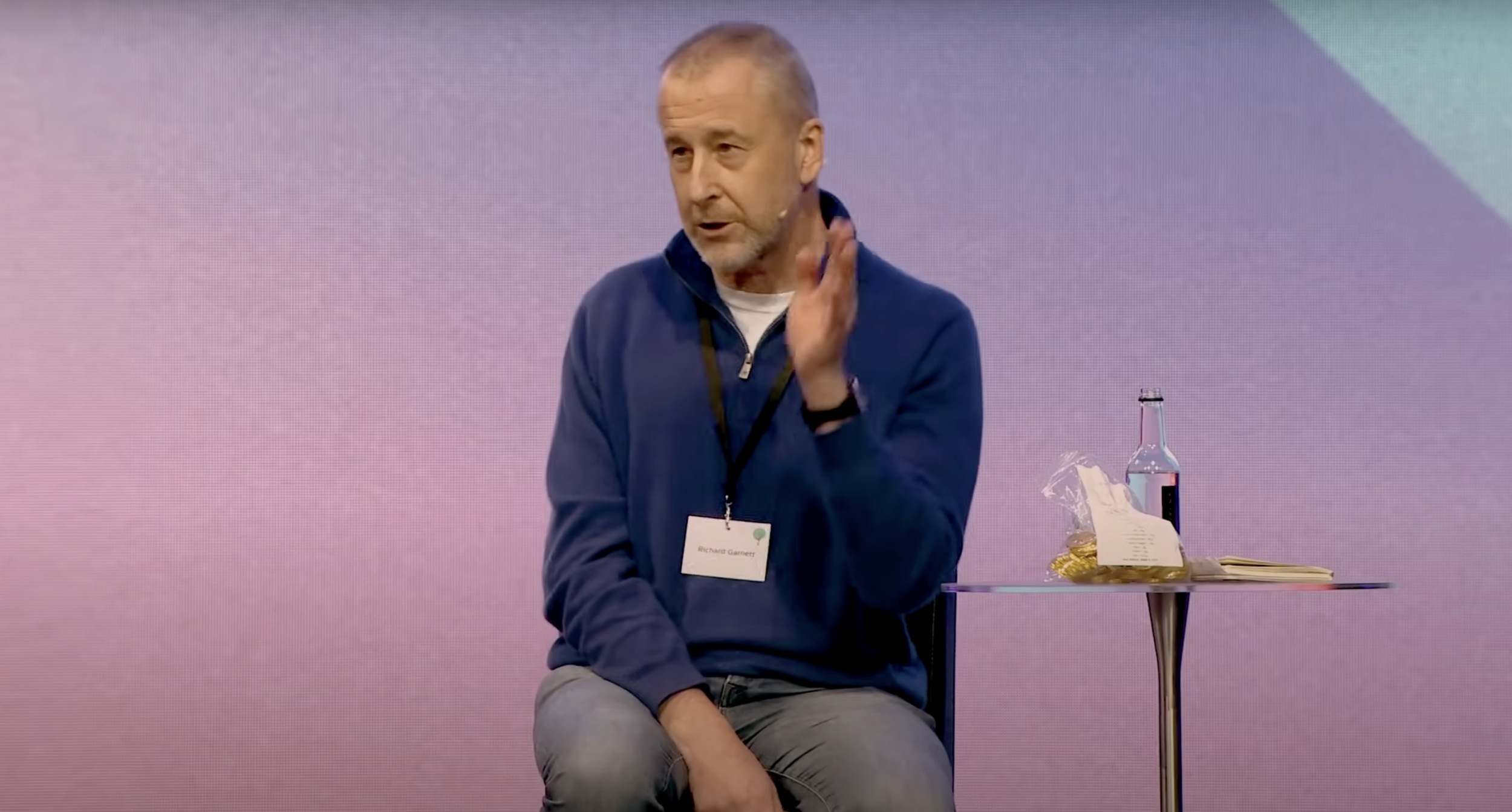
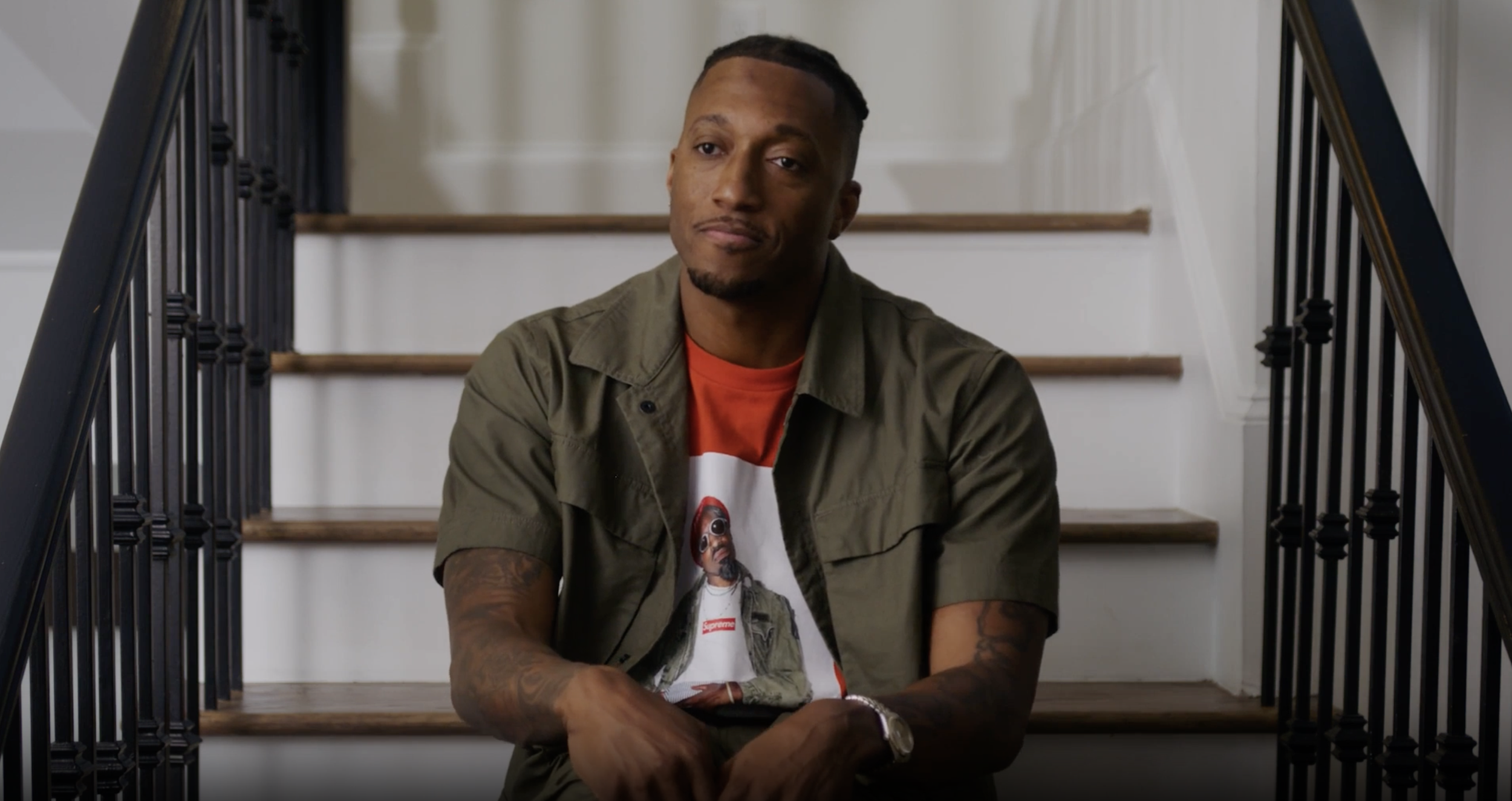
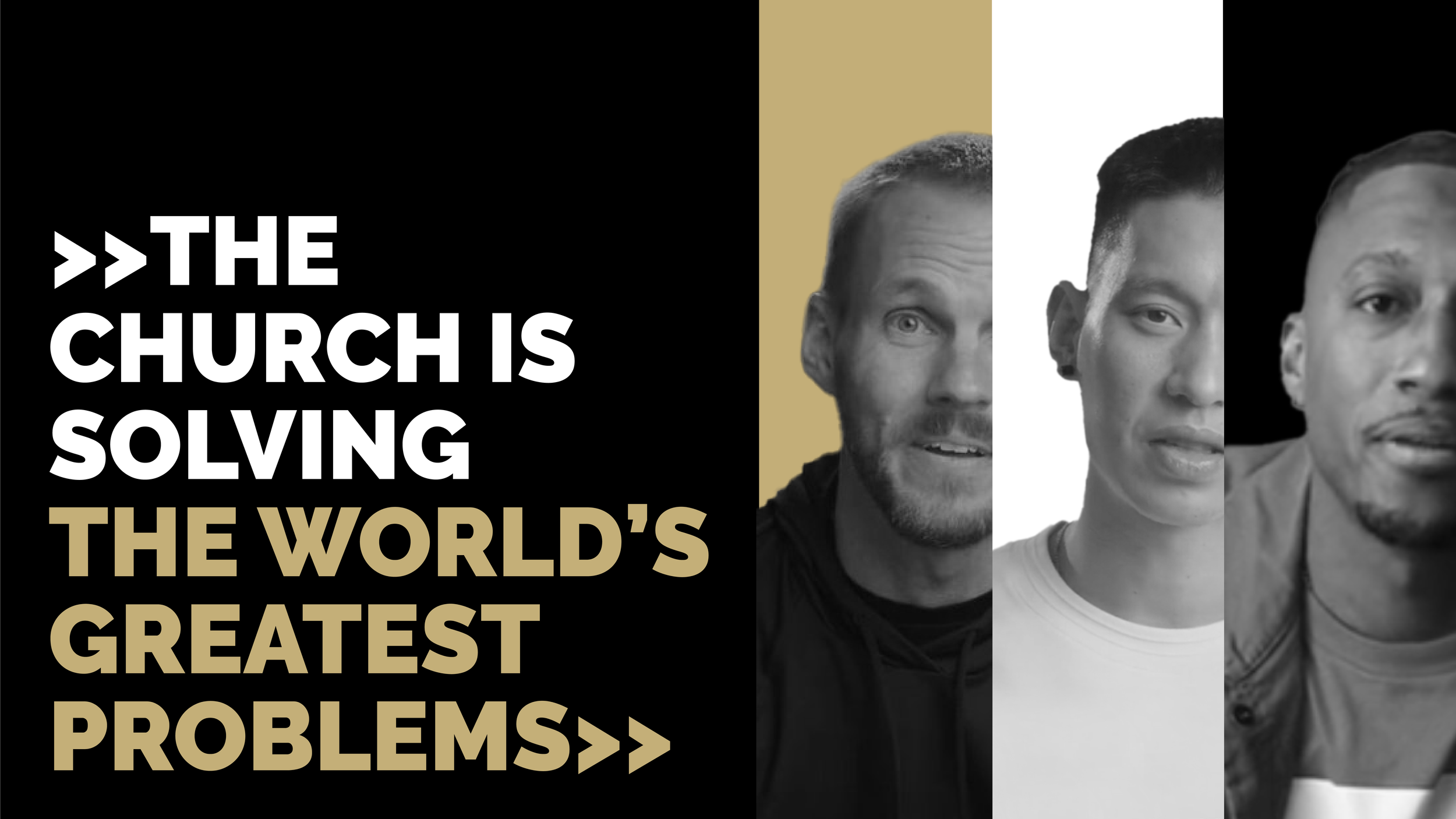

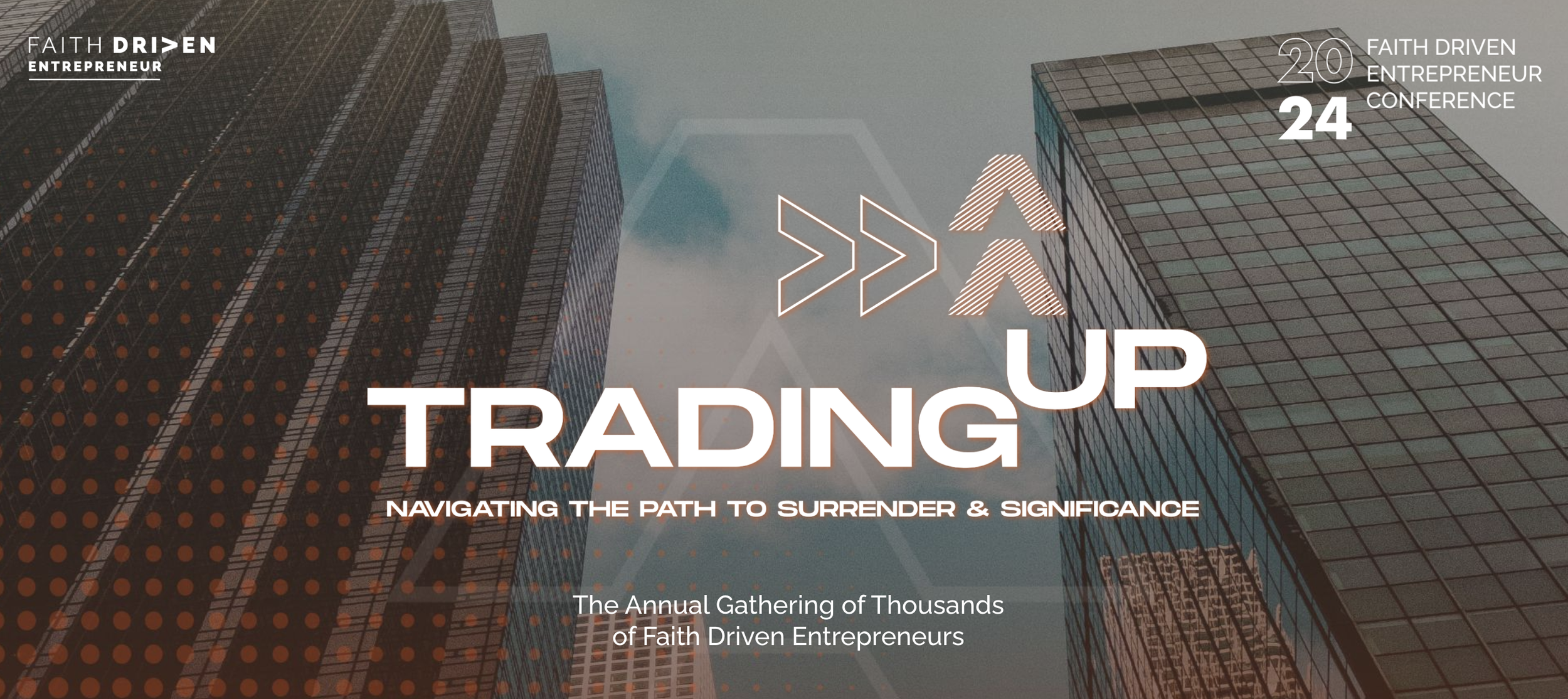
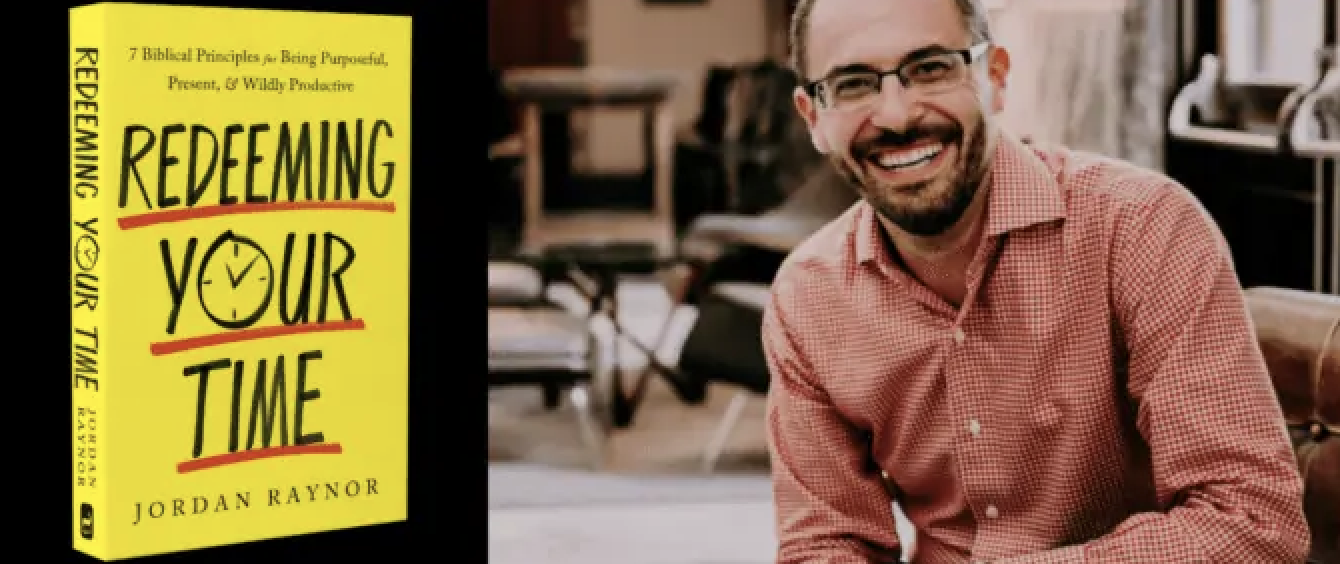
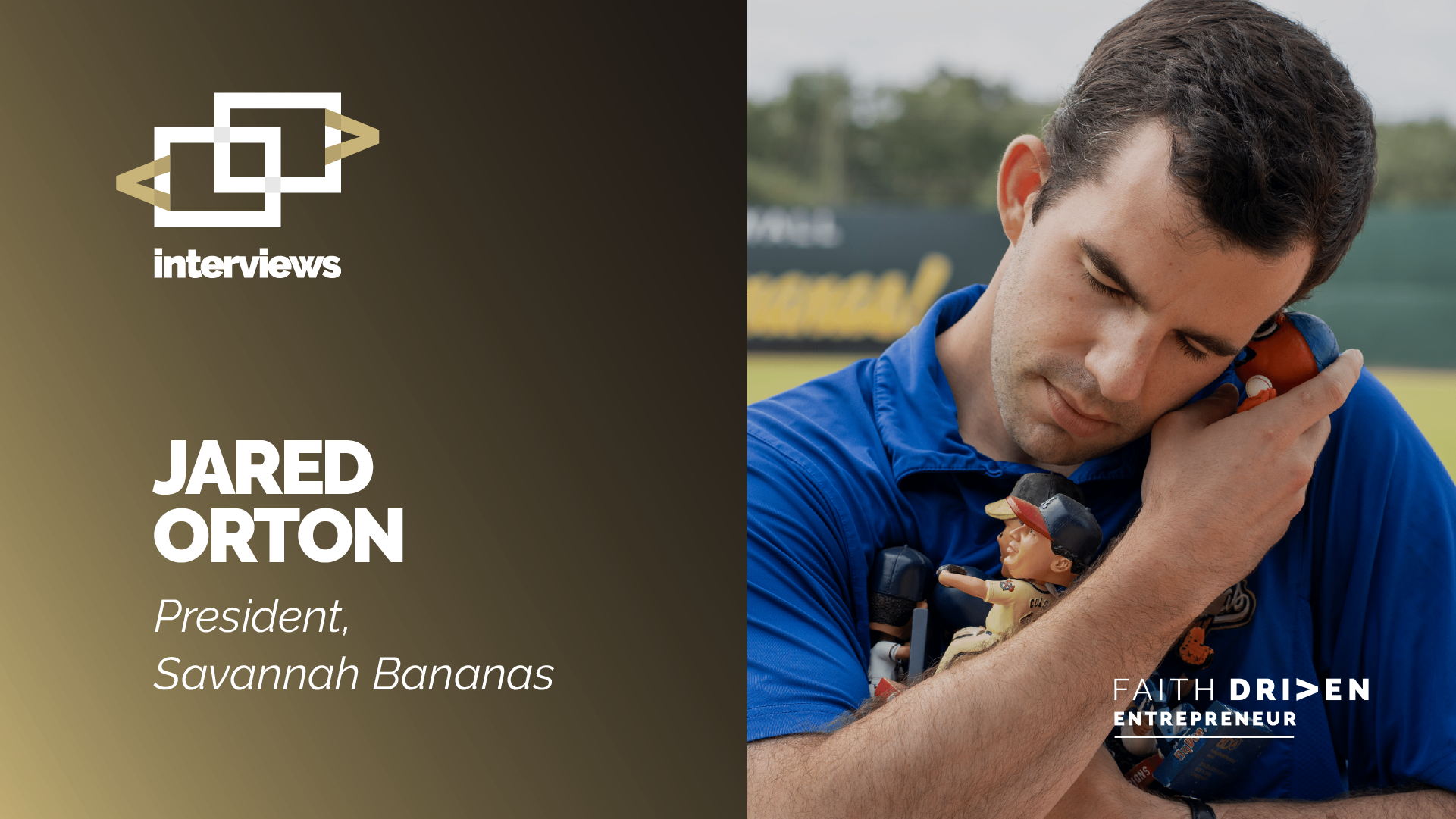
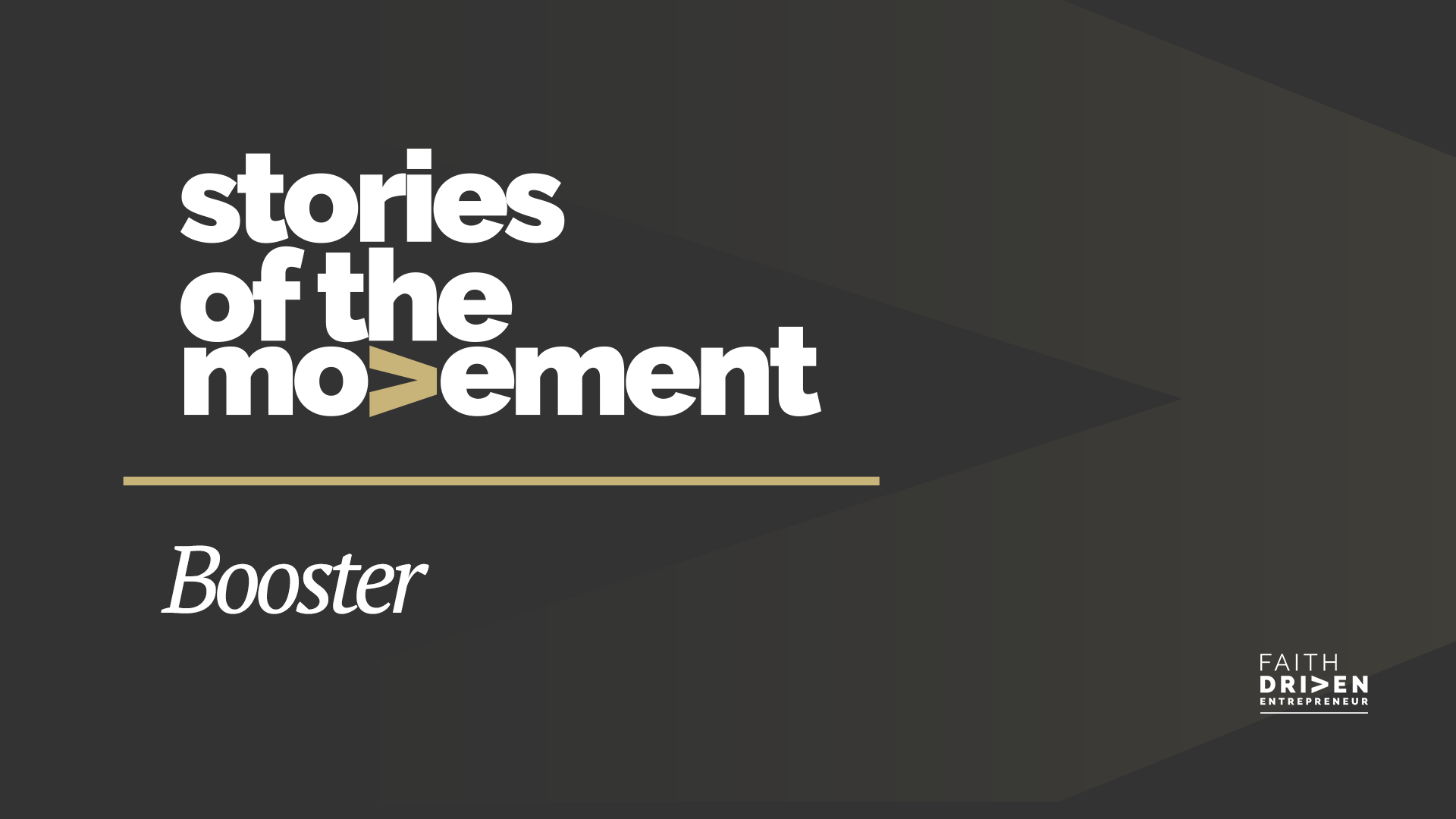
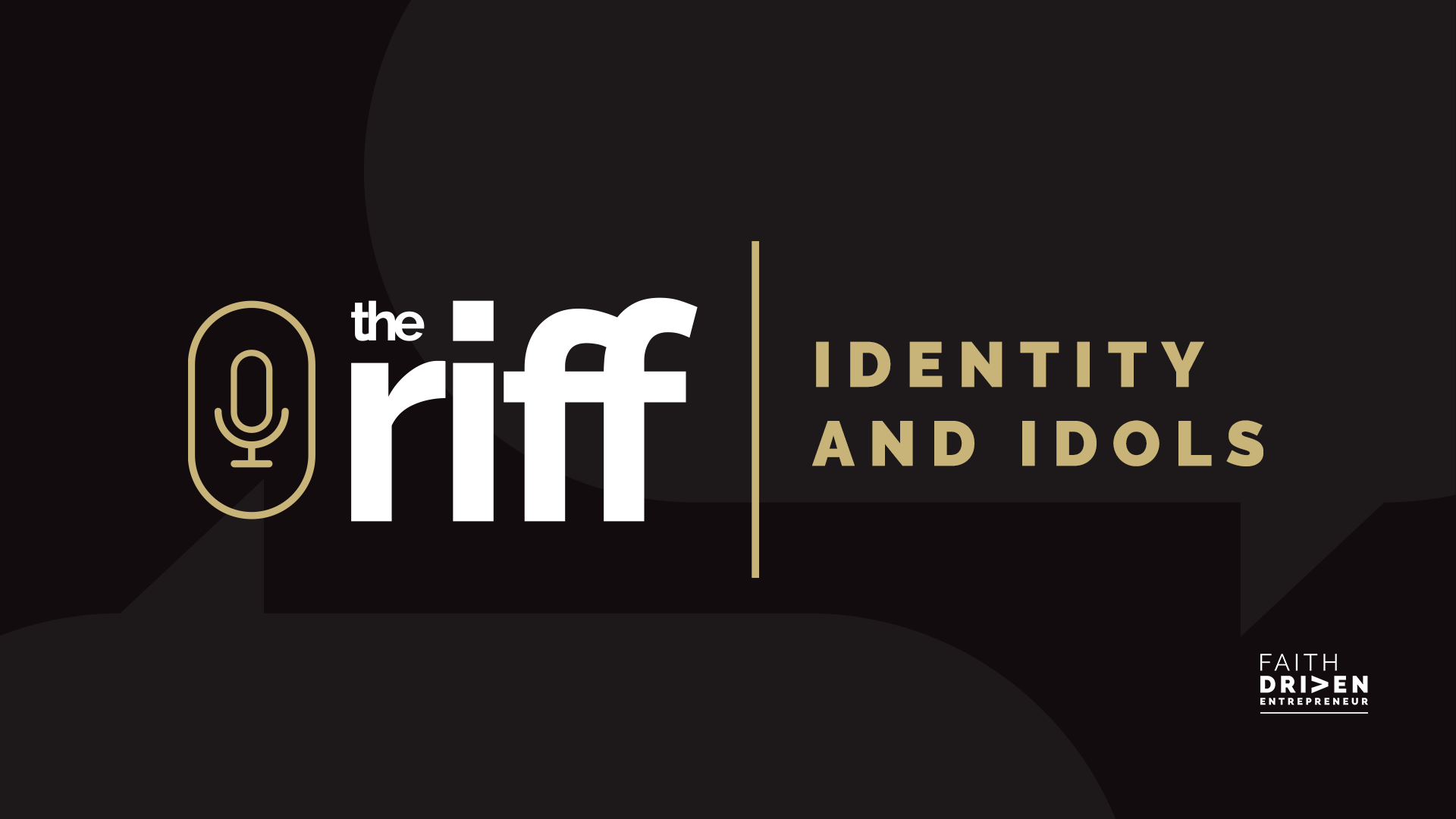
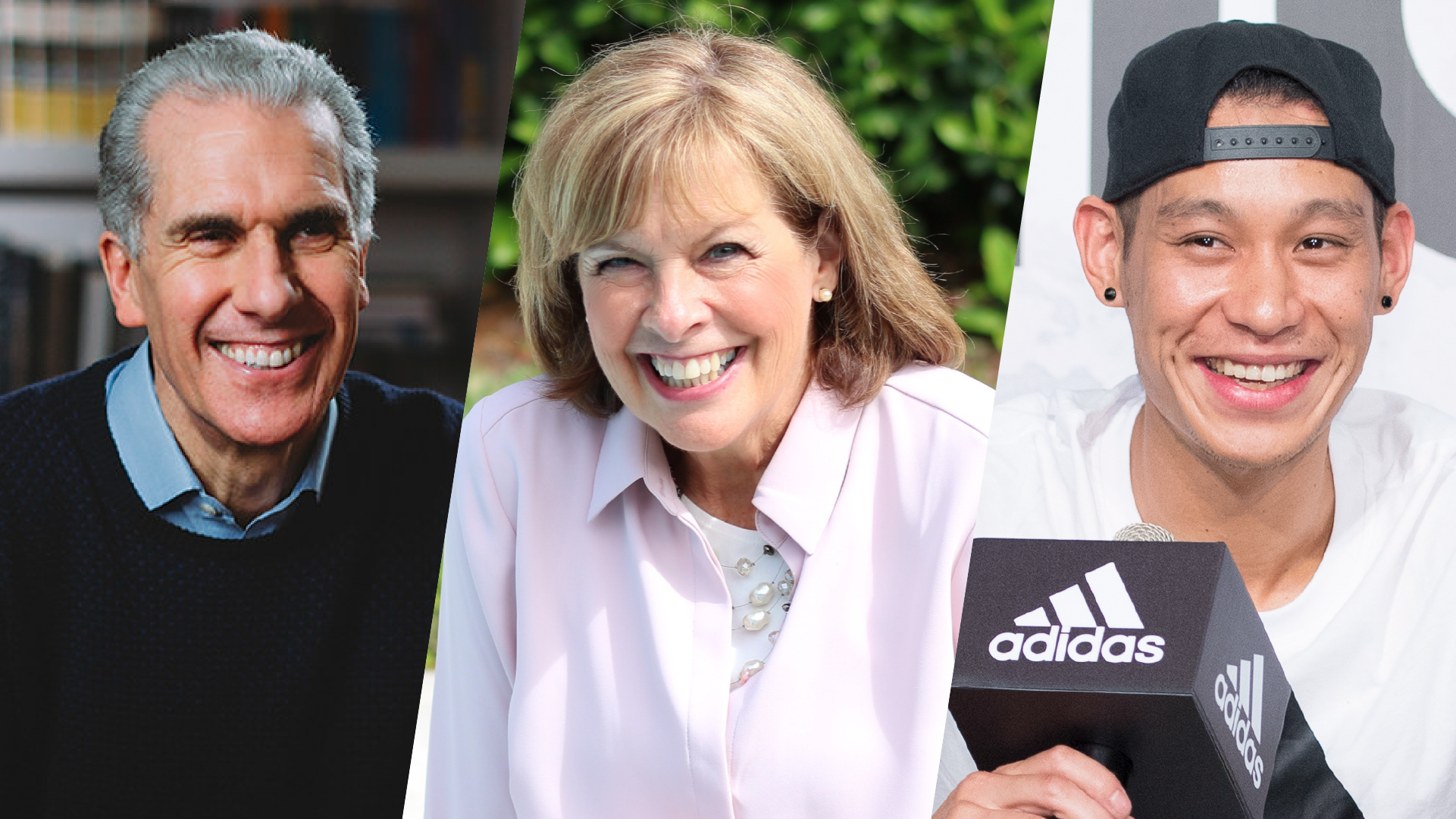
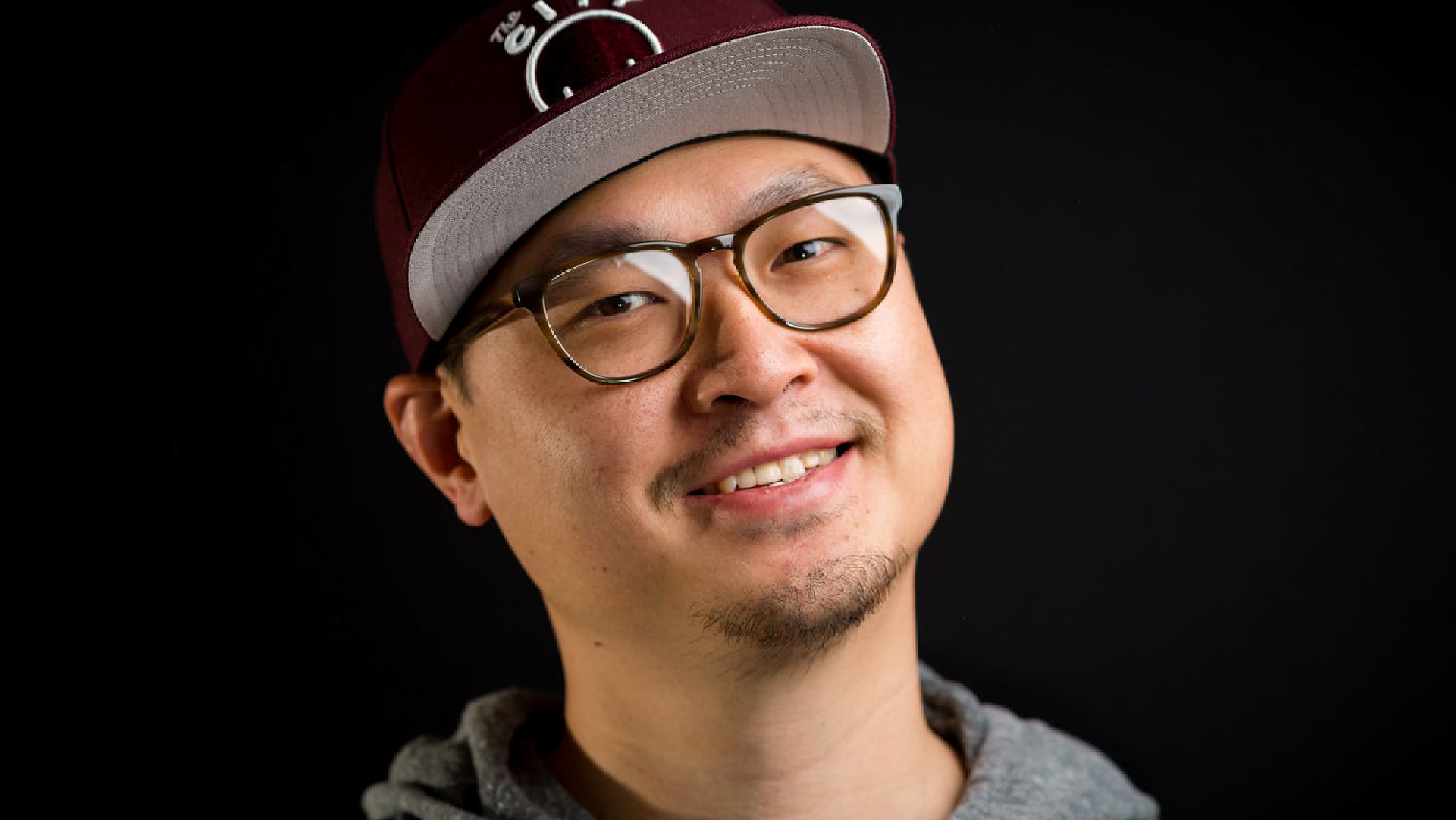
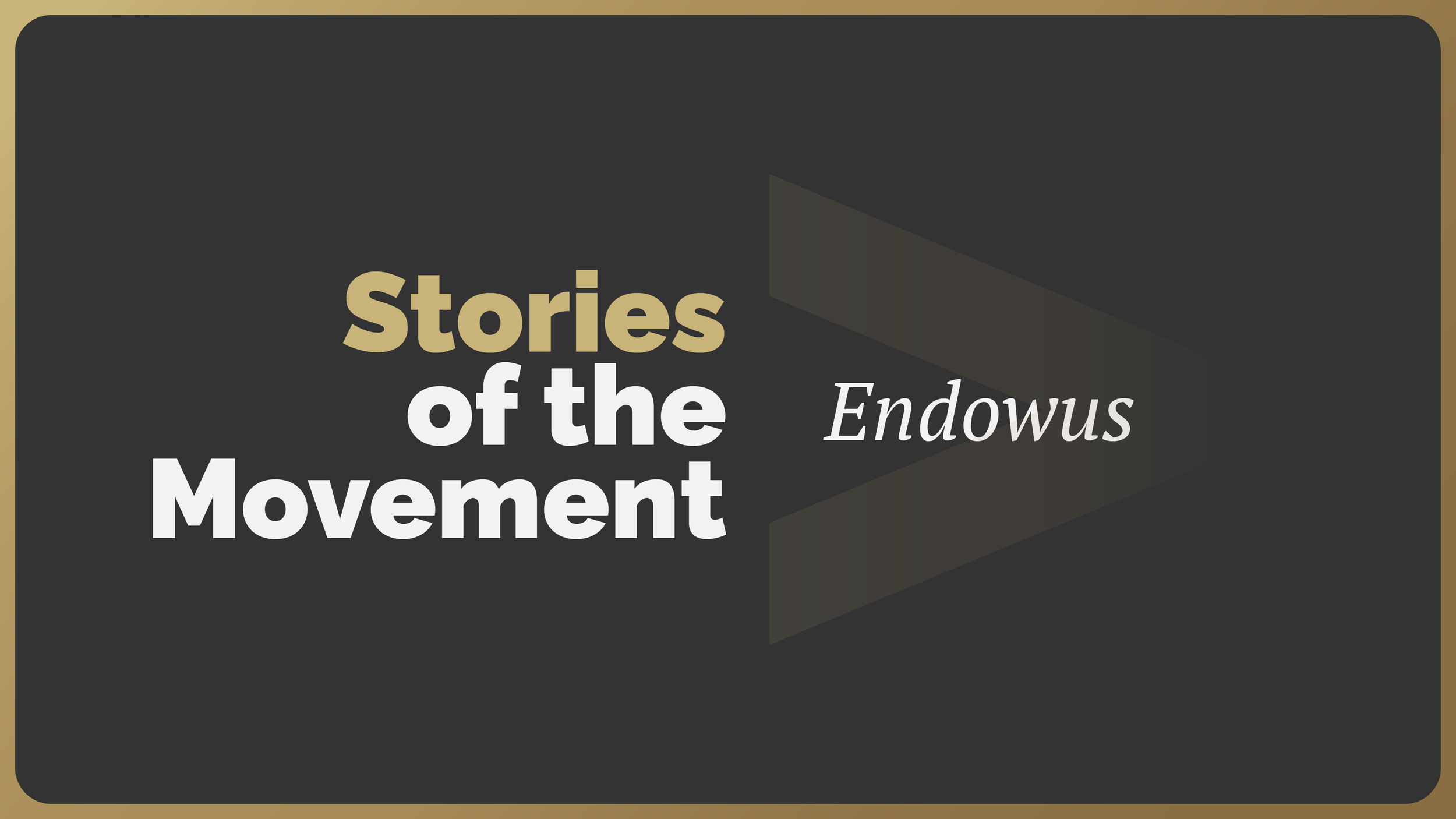

Follow the podcast